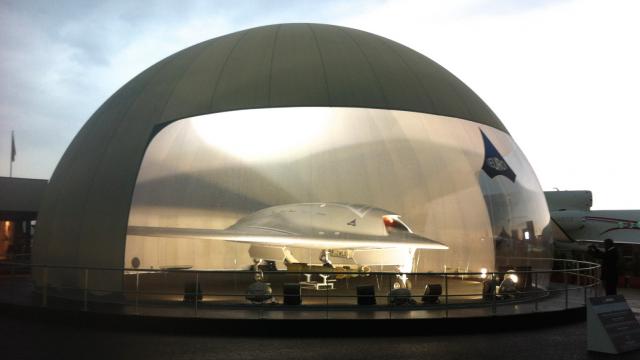
European citizens are unknowingly subsidizing through their taxes a controversial drone industry yet are systematically excluded from any debates about their use, according to a new report. Behind empty promises of consultation, E.U. officials have turned over much of drone policy development to the European defense and security corporations which seek to profit from it.
The current trajectory points in the direction of an increasingly militarized and repressive use of drones that will have far-reaching implications for the privacy and human rights for citizens of Europe and beyond.
The joint report by the Transnational Institute and Statewatch documents how:
• The E.U.'s drone policy has evolved into a coherent action plan to remove the regulatory and technical barriers that currently limit the flight of drones in civilian airspace;
• A €70 million budget line aimed at ensuring civilian drone flight was inserted into new E.U. legislation as “a politically driven priority,” in the words of the European Commission, despite the fact that there has been no democratic debate on the issue;
• At least €315 million of E.U. research funding has been awarded to drone-based projects, many of which are subsidizing Europe’s largest defense and security industries and are geared towards the development and enhancement of tools for border surveillance and law enforcement;
• At least a dozen public officials have received awards for their personal commitment to the integration of drones into civil airspace from industry lobby group UVS International;
• A Member of the European Parliament (MEP) has told meetings organized by the European Commission about “the support of the European Parliament to the development of UAS for civil use,” even though the European Parliament has adopted no formal position on UAS; the MEP, Vittorio Prodi, participated at the meeting as chair of the Sky and Space Intergroup which, despite having resources provided by arms and aerospace lobby group ASD, does not formally have the powers to make declarations or claim to represent the official view of the European Parliament;
• The E.U.'s own plans mirror a wider global aerospace 'road map' drawn up in an entirely technocratic manner by the International Civil Aviation Organisation (ICAO) and which aims to ensure regularized civilian drone flight by 2028, globally; and
• The E.U. and U.S. have signed a formal agreement that commits them to cooperating on the integration of drones into civil airspace and the harmonization of air traffic management systems.
The report also looks at the ways in which:
• The European Defence Agency is funding and encouraging the development of military drones through a new European Medium Altitude Long Endurance (MALE) drone project, backed by E.U. member states' defense ministers as part of a wider drive for the E.U. to find greater “civil-military synergies” and enhance its capability for “power projection”;
• Drones are foreseen as key to Europe’s plans for immigration control and may become a key tool of both Frontex, the E.U.'s border agency (which has paid for demonstrations of Israeli drones described as the “ultimate solution for Over The Hill reconnaissance missions, Low Intensity Conflicts and Urban warfare operations”) and a key component of EUROSUR, the European Border Surveillance System, which seeks to incorporate drones and other sensors, radars, satellite imagery into their arsenal for controlling Europe’s borders;
• The E.U. is deepening its relationship with the European Space Agency, which is pivotal to the development of the satellite and telecommunications infrastructure needed to fly drones beyond the 'line-of-sight'.
The report starts by examining in detail the substantial political and economic support given to the drone industry by the European Union. While drones may bring a variety of innovations and benefits across different sectors and markets, this support has largely benefited a defense industry desperate to compete in the glowing global market for military drones and diversify into civilian markets.
Because the E.U. – with the exception of the still-fledgling European Defence Agency – has been prohibited from funding military R&D, the European Commission has effectively focused on subsidizing the defense sector, to the tune of hundreds of millions of euros, to develop drones for ‘homeland security’ purposes, such as border surveillance and law enforcement.
Given the dual civilian/military use of much of this research, the subsidies are effectively a blank check to Europe’s military corporations. The report warns that this is tacitly encouraging the further militarization of the E.U. and the continued drive toward automation in warfare.
In 2013 the E.U. adopted a roadmap with the goal of fully integrating the flight of drones over 150kg into civilian airspace by 2028, with drones subject to no greater restriction on access than piloted aircraft. This work is led by the European Remotely Piloted Aerial Systems Steering Group (ERSG), housed within the European Commission and primarily made up of Commission officials and representatives of major European defense and security contractors, aerospace institutes and lobbyists such as UVS International, whose representatives have been present in discussion in drone policy in numerous European and international fora.
The European Commission stated in a September 2012 working paper that the “process supporting the development of civil Remotely Piloted Aerial Systems applications needs to be transparent and involve the consultation of stakeholders, for example bodies like the European Group on Ethics, the LIBE Committee of the European Parliament or the European Agency for Fundamental Rights and Data Protection Supervisor.” Yet none of these bodies have been involved in the lengthy process leading up to the current ‘road map’ nor formally consulted since.
Their absence from policy debates means that many of the conversations the E.U. should be having about drones – such as what they should and should not be used for, and how to prevent further militarization and the deployment of fully autonomous weaponized drones – have been all but ignored.
The development of drone-based technology has been boosted by funding from E.U. research budgets. The report identifies at least €315 million of E.U. research funding directed at drone-based projects; of this almost €120 million has gone towards major security research projects.
An increased emphasis on dual use technology means that much of the funding directed at civil projects may at the same time benefit the military development of drones. This is itself an area that has long been a subject of attention for the European Defence Agency, which is now playing host to a seven-nation “drone club” (currently led by the Netherlands and also including France, Germany, Greece, Italy, Poland and Spain) that aims to develop a European Medium Altitude Long Endurance (MALE) drone for surveillance use in military missions.
Many of the most significant projects awarded E.U. security research funding are, however, focused on border surveillance. At E.U. level, this function is the preserve of the borders agency Frontex. Aside from taking part in a number of E.U.-funded research projects, Frontex has also paid out thousands of euros to companies in order to view demonstrations of drones that may in the future be used for border surveillance – for the time being, it seems to be a choice between unmanned and 'optionally-piloted' aircraft, which can avoid flight restriction placed on drones through the employment of a pilot on board.
Frontex is also playing a coordinated role in the E.U.'s new border surveillance system, EUROSUR, which will integrate sensors, radars, cameras and aerial surveillance into a centralized 'picture' of EU member states' border surveillance systems.
No sustained long-range drone flight, for any purpose, is likely to take place without satellite communications links, and the European Space Agency (a broadly intergovernmental, non-E.U. body) has forged closer links with the European Commission and the European Defence Agency in part with the intention of developing these aspects of EU drone policy.
Having determined to involve itself in security and defense issues through the redefinition of certain terms within its charter, the European Space Agency became the natural partner for an EU seeking to ease drones' route into civilian airspace.It has signed cooperation agreements with the European Defence Agency and has cooperation arrangements with the European Commission for this purpose. Like the Commission – although nowhere near on the same scale – it also funds research into unmanned aircraft flight.
Nearly all the developments charted in this report have taken place with no public discussion and debate, and no scrutiny from European or national parliaments.
There are clear legitimate uses for drones, and many of these have already been demonstrated by journalists, environmentalists, geographers, political activists and others. However, the other side of the technology is one of warfare and social control. Our report suggests that the E.U. has been on the wrong side of this divide and argues that policies related to technology permitting the expansion of drone warfare should neither be developed behind closed doors nor steered by vested commercial interests.
3 WAYS TO SHOW YOUR SUPPORT
- Log in to post comments















